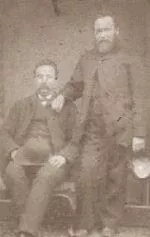Irish Family History: Next Steps

If you have already taken steps toward researching your Irish family history, this warning may come too late: be wary that hunting down and finding ancestors – particularly in Ireland – can quickly become an addictive pastime; should you wish to switch tracks, now may be your opportunity!
Of course, once you experience the thrill of discovering an unknown ancestor or have recently come across new information about your forbears, you are likely already hooked. Don’t worry; Irish family historians are harmless enough and the addiction will bring much pleasure in return – not to mention it’s even legal!
Like any addiction, gambling makes us impatient; modern lives do the same thing. “Now! Now! Now!” has become our mantra and many of us expect instantaneous answers to virtually every query on the Internet.
Irish genealogy can be challenging. (Nor is any form of genealogy.)
Accept that finding your Irish ancestry won’t happen overnight – it may take months or years! Take time to enjoy the journey, savor every moment, and embrace every discovery along the way.
Your next steps after conducting initial research depend on what information is already known; these could include some or all of:
Learn what Irish family history resources are available near where you live by consulting census records, civil registration records – birth, marriage and death certificates, church records and land records, or legal documents such as wills and probates.
Check Emigration Records If Your Ancestor Left Ireland
Post Queries On Online Message Boards And Genealogy Forums Learn About Irish Naming Patterns Join An Irish Family History Society
Locate, contact and interview distant relatives – they could hold many family secrets – as well as commission a professional genealogist to discover more of Ireland’s history, heritage, crafts and social traditions.
Visit the region in Ireland where your ancestors lived.
Toolkit Top Tip
Once your Irish genealogy research project is underway, make sure not to overlook including siblings of direct ancestors as part of your project.
Add depth and personality to your Irish family history through extended relatives; they might have left behind important documents that your direct ancestor didn’t.
Siblings or cousins may provide vital hints that can help you overcome one of the many roadblocks on your journey.
Starting your genealogical research requires some thoughtful consideration, depending on where your knowledge stands and your previous experiences. Some suggestions will likely prove more relevant than others.
If you don’t know exactly where your Irish ancestors lived, many online records may be off limits to you. However, if you know the surnames and approximate date (after 1845 for non-Catholics or 1864 for Roman Catholics), civil registration indexes could provide more insight.
Your own judgment (or hiring a professional genealogist) must be used when researching your family tree.
Irish Genealogy Toolkit will aid in honing that judgment.
By following the links or buttons at the top of this page, you’ll gain an understanding of some of the most essential Irish family history sources and learn their limitations as you use them effectively to trace your ancestors.